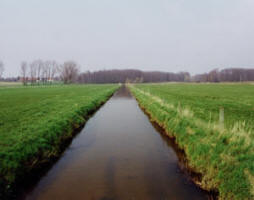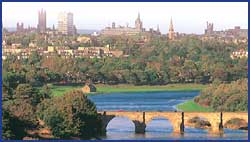 Online Summer School 2021: Edible City Solutions: One step further toward resilient and sustainably productive cities
Online Summer School 2021: Edible City Solutions: One step further toward resilient and sustainably productive cities
Edible City Solutions (ECS) respond to critical urban challenges of our time by catalyzing resources, people and places to create more resilient urban food futures. The majority of humans now live in cities and are thus exposed to urban environmental conditions that often compromise human health and wellbeing, while also threatening natural resources. Ongoing urbanization regularly diminishes green space per capita and intensifies the need to counteract environmental injustice, rising crime rates and the exclusion of vulnerable groups from participating in urban socio-economic systems and their wealth. In addition, rising costs for maintaining urban infrastructure and for mitigating climate change call for sustainable and innovative solutions to holistically strengthen urban resilience. Therefore, urban green infrastructure is being re-thought as a way of linking recreation areas and traditional nature-based solutions. These nature-based solutions (NBS) are defined as ‘solutions that are inspired and supported by nature, which are cost-effective, simultaneously provide environmental, social and economic benefits and help build resilience’.
The Edible Cities Network (EdiCitNet) Project is going a step further by deepening the social dimension of the above definition:
Over the last decade, there have been increased efforts to implement traditional NBS in our cities, such as recreational parks, urban roads lined with vegetation, and green walls and roofs. However, these NBS have not been able to significantly increase social cohesion as they mostly encourage citizens to ‘stay and use’, but not to become actively involved on-site. In contrast, initiatives based around Edible City Solutions (ECS) directly and lastingly involve citizens in social processes, ranging from co-design to co-implementation and long-term co-management of ever-evolving edible green spaces. The vision of productive urban landscapes as a focal point of the social fabric of our cities promises a strategic step towards the development of sustainable, livable and healthy cities.
Many more examples of proven ECS have already been implemented in the 5 EdiCitNet Front Runner Cities: Rotterdam, Andernach, Oslo, Berlin and Havana. However, the true potential of these activities remain constrained by fragmentation and a limited focus on local context. EdiCitNet will overcome this current state of fragmentation and isolation by connecting and piloting front-runner solutions with the strong demand for innovative urban regeneration strategies in the 7 EdiCitNet Follower Cities: Berlin, Sant de Feliu de Llobregat, Sempeter pri Gorici, Montevideo, Carthage, Lomé and Guangzhou.
The summer school will take place online from 20 September to 1 October, 2021 (with possible additional "offline" activities for those participants who are in Berlin, depending on the latest corona guidelines from the Berlin senate).
This summer school will take place online over two weeks and focus on investigating the social, economic, political and ecological aspects of Edible City Solutions and working together to co-create and explore visions for socially resilient and sustainably productive cities.
Highlights of the summer school include:
- Inspiring talks on sustainable architecture and urban design, innovative water and resource management and using ECS to tackle social challenges
- Virtual on-site tours demonstrating best practices and insights into real-life Edible City Solutions
- Engaging "hands-on" interactive tasks with stakeholders and the international ECS network
- Project work and practical tasks within interdisciplinary working groups
- Regular input and feedback from ECS experts from diverse backgrounds
- A flexible, digital learning environment that can be adapted to your own individual schedule and fitted around other work or study commitments
- An official certificate upon completion of the programme
More detailed information on this 2-week programme will follow shortly.
Application - Deadline: 16 July, 2021
Applications are invited from a range of different interested parties: including international city administrators, small and medium-sized enterprises, non-governmental organisations and of course doctoral researchers. The summer school is free of charge. Spaces are limited, therefore admission is based on application.
Required documents for application are:
- Application form
- Letter of Motivation
- Curriculum Vitae
Please send your application documents by email to marisa.pettit@hu-berlin.de by July 16th, 2021, 23.59pm GMT.
| Contact information | n/a |
|---|---|
| Event type | Training |
| File link |
https://www.iri-thesys.org/events/summer-school/thesys-summer-school-2021 |
| Source | iri-thesys |
| Subject(s) | AGRICULTURE , WATER DEMAND |
| Geographical coverage | n/a |
| Address | n/a |
| Target audience | International |
| Period | [20/09/2021 - 01/10/2021] |
| Status | Confirmed |
| Working language(s) | ENGLISH |
 you are not logged in
you are not logged in





